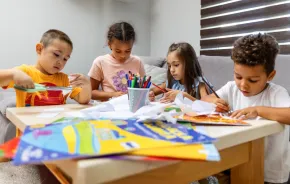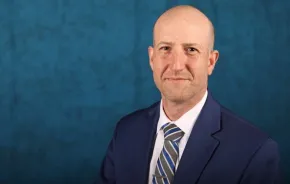
If you’re the parent of a high school student who’s planning for college, you’ve probably wondered — and worried — about how they can set themselves apart during the application process. Good grades, strong test scores, extracurricular activities, sports and volunteering are all great. But there’s something else you might not have considered: university enrichment programs.
These programs are an opportunity for students to explore topics they’re interested in without the pressure of earning grades. It’s learning for the love of learning. While there are no promises that such programs will be the deciding factor in whether or not your child gets into their dream school, as the director of the year-round University of Washington Youth & Teen Programs, I can say that there’s probably not a single college admissions team out there that wouldn’t look at their participation in an enrichment program as a plus.
Following are my recommendations for parents considering enrichment programs for their student this fall.
What is an enrichment program?
Enrichment programs are like the high school equivalent of the summer camps you might have sent your child to in elementary or middle school. These programs offer an opportunity for your teen to enjoy the learning process in a way that’s different than what they get during the school year. They can really dig in to a topic, such as coding, screenwriting or even writing for college readiness.
How can I describe an enrichment program to my child? Is it basically like remote learning?
University enrichment programs for high school students (and specifically the programs we offer at UW) are typically delivered using the Canvas learning management system and Zoom video conferencing. Our classes meet in real time and are not recorded. So, it may feel somewhat similar to remote classes students may have experienced through their school district. However, there are no grades, tests or other assessments. That said, the classes are still rigorous, and there is an expectation that students keep up with assignments and attend all classes.
How can I tell if a program is worth it?
Features that make up good online enrichment classes are generally similar to features that make good enrichment experiences in person. Parents should look for instructors who are:
- Dynamic, creative and organized
- Good at motivating students to show up and participate
- Capable of setting clear class expectations, such as having working technology (computer, webcam, mic, internet connection) and encouraging students to have a dedicated workspace); and etiquette, including logging in on time and turning on the camera
Instructors who are the most effective when teaching remotely make online learning interactive. Students need opportunities to actively process the information. Instructors should use a blend of group discussion, small group or partner work, and individual work time.
As a parent, should I care most about the provider, the instructor or the format?
All of these things are important in their own way. You’ll want to consider providers based on your own criteria, which could be cost, name recognition, course selection or convenience. Of course, format is a choice you’ll make based on what your child likes and needs. You’ll have the least control over the instructor, but you can be assured that universities are hiring well-trained experts. An experienced instructor using even the most basic resources can deliver a high-caliber learning experience.
What subjects are the best ones for students to enroll in?
It depends on your child’s interests. This should be a personalized experience that your child is excited about. UW Youth & Teen Programs tries hard to offer a variety of STEM and arts and humanities courses. Classes that are popular tend to be those for which a student already has a passion or strong interest.
What if my teenager isn’t sure they want to take on another class? How can I make them see that something like a college readiness course will pay off for them in the long run?
If a student is really not sold on the idea, this may not be the right time to enroll them in out-of-school enrichment. When your student is taking an enrichment course during the academic year, it’s important to make sure they will have the time to balance it with homework and other commitments.
Why should I spend money for an enrichment program when there is so much free content online?
Out-of-school time or after-school enrichment is unique and different from school. The instructors have more freedom to approach how and what they teach. School-year instructors are required to teach according to curriculums that are decided by the state or school district, and students don’t necessarily get to explore their own interests. Academic-year learning doesn’t always allow for student exploration.
A lot of free online content has already been produced, making it less interactive than being in real-time, face-to-face remote classes. Real-time, instructor-led courses like those we offer at UW give students immediate feedback from their instructors and peers. This advantage is worth considering when weighing a paid program versus a free online recording.











